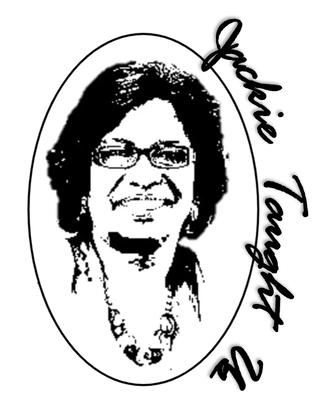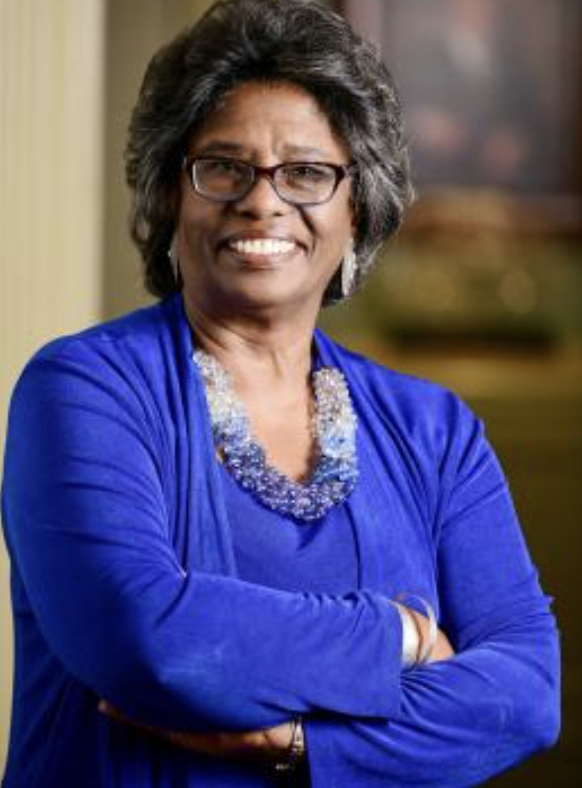
Now we are ready TO... GO... ALL... THE... WAY... IN.
Be clear: the presence of folx who call themselves Black Feminist Rhetoric Scholars was made possible by Jacqueline Jones Royster. We simply wouldn’t be here otherwise. Royster has many publications and professional accolades, but we are going to the source of the river--- her 2000 book, Traces of a Stream: Literacy and Social Change Among African American Women.
We will blend rhetorical/historical study, curriculum design, and literacy instruction as a way to get to know the work that Royster does better. She is, hands down, a formidable HISTORIAN. Good rhetoric scholars always are, since primary sources are at the core of our wheelhouse. However, Royster is also a deeply thoughtful and creative teacher who challenges the politics of schools and classrooms, the content and styles of literacy and language instruction, and the past and present of Black education. Think of her as the Anna Julia Cooper of rhetorical education.
Be clear: the presence of folx who call themselves Black Feminist Rhetoric Scholars was made possible by Jacqueline Jones Royster. We simply wouldn’t be here otherwise. Royster has many publications and professional accolades, but we are going to the source of the river--- her 2000 book, Traces of a Stream: Literacy and Social Change Among African American Women.
We will blend rhetorical/historical study, curriculum design, and literacy instruction as a way to get to know the work that Royster does better. She is, hands down, a formidable HISTORIAN. Good rhetoric scholars always are, since primary sources are at the core of our wheelhouse. However, Royster is also a deeply thoughtful and creative teacher who challenges the politics of schools and classrooms, the content and styles of literacy and language instruction, and the past and present of Black education. Think of her as the Anna Julia Cooper of rhetorical education.
As you read Traces, think about the following:
- Which of the rhetors who Royster discusses are folx you might want to teach others about. Why? How?
- Which of Royster's definitions and approaches to Black feminist literacy and rhetoric stand out for you? Why? How?
- What other scholars we have discussed thus far connect to Traces? How so?
|
|
|
|
Stay tuned for more sketches and details of Dr. Royster's that are currently in progress.
FOR FULL SYLLABUS, CLICK HERE.
FOR FULL SYLLABUS, CLICK HERE.
|
Dr. Royster, former Dean of Georgia Tech's Ivan Allen College of Liberal Arts (2010 – 2019), is Professor Emerita of English in the School of Literature, Media, and Communication. A graduate of Spelman College in Atlanta, Royster earned an M.A. and D.A. in English from the University of Michigan. Her research centers on rhetorical studies, literacy studies, women’s studies, cultural studies, areas in which she has authored and co-authored numerous articles and book chapters. She is the author or co-author of four books: Southern Horrors and Other Writings: The Anti-Lynching Campaign of Ida B. Wells-Barnett (1997), Traces of a Stream: Literacy and Social Change among African American Women (2000), Profiles of Ohio Women, 1803-2003 (2003), and Feminist Rhetorical Studies: New Horizons in Rhetoric, Composition, and Literacy Studies (2012).
|
She is the co-editor of two books: Double-Stitch: Black Women Write about Mothers and Daughters (1991) and Calling Cards: Theory and Practice in the Study of Race, Gender, and Culture (2005), and the editor of an anthology for college writing courses, Critical Inquiries (2003). She was consulting writer for Writer’s Choice, a textbook series for grades 6 – 8, and co-editor of Reader’s Choice, a literature series for grades 9 – 12, both published by Glencoe/McGraw-Hill. Prior to joining Georgia Tech in 2010, Royster served as Senior Vice Provost and Executive Dean of the Colleges of Arts and Sciences at The Ohio State University (OSU).

